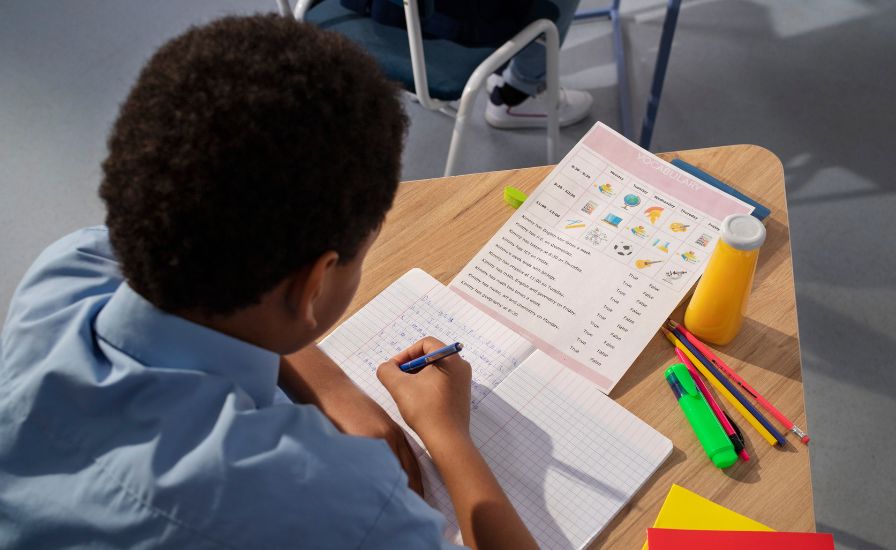If you’re a teacher preparing students or a parent considering 11 plus mock exams for your child. You will come across the term “GL assessment”. What does GL assessment stand for or why is it important for 11 plus examination? Let’s dive into five key insights to understand what GL Assessment is all about.

What Does GL Assessment Stand For?
GL stands for granada learning. It is a company that provides 11 plus assessments across the UK.
Understanding GL Assessment
GL assessment is a UK based company which prepares exams and assessments for students. They are renowned for providing multiple services for various educational institutes all over the world but mostly, they are recognised for their role of preparing 11 plus exams.
These assessments are taken to determine if a student is eligible to get into their preferred school. GL Assessment 11 Plus exams are prepared to test a student’s aptitude in various subjects and help identify those who are academically capable.
Parents often use GL Assessment practises to help their children prepare for the exam, boosting their knowledge and self confidence.
What Is the 11 Plus Exam?
The 11 plus exam is a test that is used by grammar schools to select students for entry. Students take this exam when they are in their final year of primary school around the age of 10 or 11. It has a long history in the UK, and has been a key tool for identifying academically gifted students up till now.
GL Assessment is one of the leading providers of 11 Plus exams. Their Exams are used by many grammar schools across the UK. The exam normally is based on multiple-choice questions covering subjects like English, mathematics, verbal reasoning, and non-verbal reasoning. The format and content can be a little different depending on the country and the school, but GL Assessment’s tests are designed to be fair.
Different regions or schools might use slightly different formats of the 11 Plus, but they usually involve multiple-choice questions. The purpose is to keep the process fair, ensuring that all students have an equal chance to show their abilities.
Key Components of GL Assessment 11 Plus Exams
GL assessment 11 plus exams consist of some key components. It’s important to know about them for the people who are preparing for the exam.
English
The English section determines a student’s understanding of grammar, vocabulary, punctuation, and comprehension. The time limit to finish this test is 50 minutes.
It includes:
- Comprehension – 18 questions
- word meaning – 4 questions
- Grammatical – 3 questions
- Identifying errors – 8 questions
- Assessing vocabulary – 8 questions
Mathematics
This test usually has 50 questions to be solved in 50 minutes.
It includes:
- Basic arithmetic: addition, subtraction, multiplication, and division.
- Number Concepts: Fractions, decimals, percentages – Prime numbers, prime factors – Highest common factor (HCF), lowest common multiple (LCM)
- Measurement: metric system, perimeter, money, time, area, distance, speed and time, volume of shapes.
- Statistics: Averages (mean, median, mode), Simple ratio, Column graphs, pie charts, Coordinates.
- Geometry: Angle calculations, Reflection, rotation, 3D shapes
- Basic concepts of probability.
Verbal Reasoning
Verbal reasoning focuses on a child’s ability to understand and language-based information. This test has 80 questions to be completed in under 50 minutes.
It includes:
- word patterns
- logic, analogies
- Coding-decoding.
Non-verbal Reasoning
The 11 Plus non-verbal reasoning exam examines how good your child is at understanding pictures and solving problems using visual clues.
It includes:
Non-verbal reasoning involves visual skills. It tests a child’s ability to work with shapes, patterns, and sequences.
- Identifying similarities and differences
- Completing sequences
- Solving visual puzzles
Understanding these components helps parents and teachers guide students in their exam preparation. Each section requires specific skills, and a balanced approach to studying is key.

4. Why GL Assessment Matters in 11 Plus Exams
GL assessment plays an important role in 11 plus exams because it has the reputation of producing well designed and reliable test papers. Schools and local institutes use GL Assessment’s exams because they ensure fairness and accuracy in testing students’ abilities.
Here are the few reasons why GL assessment matters in 11-plus exams:
- Consistency: GL assessments make sure that their exams are consistent in every school or institute.
- Research based: their test development is entirely based on educational research. They use relevant data and studies to create exams that accurately examine a child’s aptitude and potential.
- Well known: there are many schools and educational institutes who use GL assessment to test a student’s ability which makes them a trusted choice for parents, teachers, and schools.
- Adaptability: GL Assessment’s exams can be changed to fit what different schools and regions need. This allows schools to adjust the exam questions to match their own syllabus and teaching goals.
- Preparation: GL assessments provides multiple practise papers, study guides and tips to help the students prepare for their 11 plus exams.
GL Assessment is important for the 11 Plus exam because they make the tests that grammar schools use to decide which students can join their study programmes. They design the questions to be fair and cover all the subjects that are needed for the exam.

5. How to Prepare for GL Assessment 11 Plus Exams
Preparation is key to success in the 11 Plus exam. If you’re helping a child prepare, here are some practical tips:
Start Early
It’s never too early to start the preparation of the 11 Plus exam. begin with a regular study schedule and decide time for each exam section.
Use Practise Papers
GL assessments offer practise papers that are similar to the actual exams. These practise papers will help students become familiar with the format and types of questions they will encounter in the exam.
Focus on Weak Areas
Identify areas where the child needs improvement and focus on those during study sessions. This will help them in boosting their knowledge about specific sections.
Regular Reading
Regular reading helps improve vocabulary and comprehension skills, which are important for the english and verbal reasoning section.
Problem Solving Practises
Engage your child into problem solving practises and puzzles. This will help them increase their knowledge needed for mathematics and nonverbal resoning.
Be Positive and Stay Calm
It is normal to get stressed before the exam. Encourage the child to take breaks, stay positive, and maintain a balanced lifestyle.
Confidence is the key to success. In order to perform well in the exams, you have to make sure that your child believes in his\her ability to ace the exam.
Conclusion
To sum it all up, GL Assessment is really important for the 11 Plus exams in the UK. They make the tests that help grammar schools select students. Because schools can rely on their results as they have gained the reputation of reliability and well researched test papers.
If you’re preparing for the 11 Plus, you should know about the different parts of the exam. There’s English, maths, verbal reasoning, and non-verbal reasoning. Using practise papers from GL Assessment can really help you prepare your child.
It’s also a good thing to keep their study time balanced. Don’t forget to let them take breaks and do other activities to stay relaxed.
With these key insights, you can support your child in getting ready for the 11 Plus. It might seem a bit scary, but with the right preparation and a positive attitude, you’ll do a good job.
Best of luck!










Leave a Reply